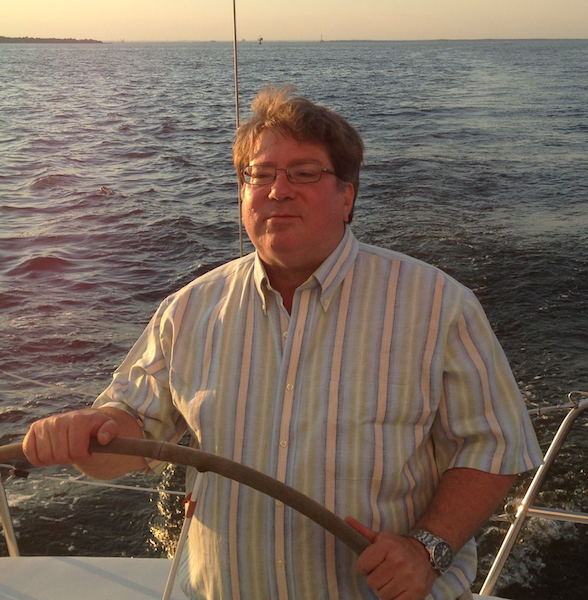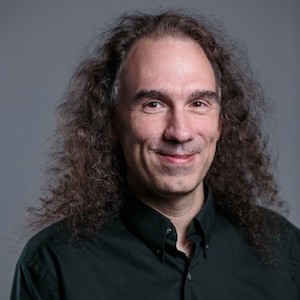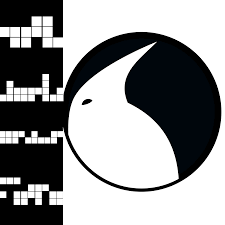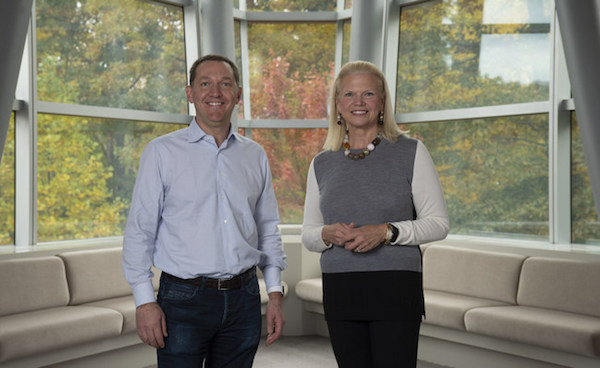open source principles
See the following -
Beyond HIT Interoperability: Open Platforms are the Key
Open platforms in health IT are inevitable. Exactly when OPEN becomes health IT’s de facto reality is impossible to determine. But we can be certain that it will happen because healthcare businesses focused on quality improvement and cost-effective care will demand it Read More »
- Login to post comments
College Students Tackle PTSD at First DC Hackathon
 More than 50 college students from across the world gathered this previous weekend at HackDC 2015, the first Hackathon dedicated to crowdsourcing innovative ways to address the serious problem of Post-Traumatic Stress Disorder (PTSD) by creating mobile applications and solutions. The event, which started on Friday, went through Sunday afternoon. Held at the Richard J. Ernst Community Cultural Center in the Annandale Campus of the Northern Virginia Community Colleges (NVCC), HackDC 2015 provided the participants with access to food, sleeping facilities, and showers so that they could work straight through the weekend.
More than 50 college students from across the world gathered this previous weekend at HackDC 2015, the first Hackathon dedicated to crowdsourcing innovative ways to address the serious problem of Post-Traumatic Stress Disorder (PTSD) by creating mobile applications and solutions. The event, which started on Friday, went through Sunday afternoon. Held at the Richard J. Ernst Community Cultural Center in the Annandale Campus of the Northern Virginia Community Colleges (NVCC), HackDC 2015 provided the participants with access to food, sleeping facilities, and showers so that they could work straight through the weekend.
- Login to post comments
How Upstream Contributions Power Scientific Research
 Just as with software development, research under Horizon Europe promotes the adoption of sharing research outputs as early and widely as possible to citizen science, developing new indicators for evaluation research, and rewarding researchers. Horizon Europe emphasizes open science and open source technology. The program evolved from Horizon 2020, which provided financial support for research projects that promoted industrial competitiveness, advanced scientific excellence, or solved social challenges through the process of "open science." Open science is an approach to the scientific process based on open cooperative work, tools, and diffusing knowledge found in the Horizon Europe Regulation and Model Grant Agreement. This open science approach aligns with open source principles that provide a structure for such cooperation.
Just as with software development, research under Horizon Europe promotes the adoption of sharing research outputs as early and widely as possible to citizen science, developing new indicators for evaluation research, and rewarding researchers. Horizon Europe emphasizes open science and open source technology. The program evolved from Horizon 2020, which provided financial support for research projects that promoted industrial competitiveness, advanced scientific excellence, or solved social challenges through the process of "open science." Open science is an approach to the scientific process based on open cooperative work, tools, and diffusing knowledge found in the Horizon Europe Regulation and Model Grant Agreement. This open science approach aligns with open source principles that provide a structure for such cooperation.
- Login to post comments
Makers are the new industrial revolution
Following up on the recent review of the Maker's Manifesto, I ran across the book Makers: The New Industrial Revolution by Chris Anderson. Anderson is a former Editor in Chief of Wired and no stranger to the economic paradoxes of peer-production and open source. He has written about both in previous books The Long Tail: Why the Future of Business Is Selling Less of More and Free: The Future of a Radical Price. Read More »
- Login to post comments
New Open Source Program Director Supports Students' Passions at the Rochester Institute of Technology
 The Rochester Institute of Technology (RIT) is well-known for its work in open source software through FOSS@MAGIC. In April 2014, RIT started to offer a minor in free and open source software. Students work on several different open source projects in their GitHub organization. One of the courses in the minor, Humanitarian Free and Open Source Software Development, has students work with the One Laptop per Child XO laptops. Students create games that help teach New York and Massachusetts fourth grade math curriculum. Dan Schneiderman is the new head of the FOSS@MAGIC program at RIT...
The Rochester Institute of Technology (RIT) is well-known for its work in open source software through FOSS@MAGIC. In April 2014, RIT started to offer a minor in free and open source software. Students work on several different open source projects in their GitHub organization. One of the courses in the minor, Humanitarian Free and Open Source Software Development, has students work with the One Laptop per Child XO laptops. Students create games that help teach New York and Massachusetts fourth grade math curriculum. Dan Schneiderman is the new head of the FOSS@MAGIC program at RIT...
- Login to post comments
Open Education: There Isn't an App for That
 Open source software has saved my district-Penn Manor School District in Lancaster County, Pennsylvania-more than a million dollars on its technology budget. But more importantly, making a deliberate and concerted effort to infuse open principles and practices into our learning environments has cultivated a vibrant and inclusive learning community that cuts across the school. And as a result, student success has exceeded our expectations. But how do schools put open ideas into practice to foster future innovators and leaders? It's not as simple as installing Linux on 4,000 student laptops, holding hands, and singing the alma mater in the high school cafeteria.
Open source software has saved my district-Penn Manor School District in Lancaster County, Pennsylvania-more than a million dollars on its technology budget. But more importantly, making a deliberate and concerted effort to infuse open principles and practices into our learning environments has cultivated a vibrant and inclusive learning community that cuts across the school. And as a result, student success has exceeded our expectations. But how do schools put open ideas into practice to foster future innovators and leaders? It's not as simple as installing Linux on 4,000 student laptops, holding hands, and singing the alma mater in the high school cafeteria.
- Login to post comments
Open Is the Solution to Improving 21st Century Education
 Much of the Internet runs Linux and open source software, yet in most of our schools—whether PK-12 or higher education—Linux and open source software are given short shrift. Linux has made serious inroads on hand-held devices, the desktop, and the Internet of things (IoT) that use platforms such as Raspberry Pi, Galileo, and Arduino. Despite this astounding growth, a relatively small number of secondary and post-secondary schools offer technology training that prepares students for increasingly in-demand technical skills. The growth of the maker movement and the concurrent interest in STEM skills, which include coding and ethical hacking, may provide a much-needed impetus to change this trend. The problem for most schools is finding the mentors and exemplars of this paradigm...
Much of the Internet runs Linux and open source software, yet in most of our schools—whether PK-12 or higher education—Linux and open source software are given short shrift. Linux has made serious inroads on hand-held devices, the desktop, and the Internet of things (IoT) that use platforms such as Raspberry Pi, Galileo, and Arduino. Despite this astounding growth, a relatively small number of secondary and post-secondary schools offer technology training that prepares students for increasingly in-demand technical skills. The growth of the maker movement and the concurrent interest in STEM skills, which include coding and ethical hacking, may provide a much-needed impetus to change this trend. The problem for most schools is finding the mentors and exemplars of this paradigm...
- Login to post comments
Open Source App Takes on Ebola and Mental Health in Liberia
 Angie Nyakoon and Amanda Gbarmo Ndorbor are two outspoken and energetic women who oversee the Mental Health Unit at the Ministry of Health and Social Welfare (MOHSW) in Liberia. Together, they're applying a new open source app called mHero (that was first used to help them deal with the Ebola crisis) to the mental health issues that have arisen in the aftermath of the epidemic due to displacement and abandonment...mHero provides a trusted channel that facilitates two-way communication using SMS and interactive voice response for sending and receiving critical information to and from frontline health workers, in real time...
Angie Nyakoon and Amanda Gbarmo Ndorbor are two outspoken and energetic women who oversee the Mental Health Unit at the Ministry of Health and Social Welfare (MOHSW) in Liberia. Together, they're applying a new open source app called mHero (that was first used to help them deal with the Ebola crisis) to the mental health issues that have arisen in the aftermath of the epidemic due to displacement and abandonment...mHero provides a trusted channel that facilitates two-way communication using SMS and interactive voice response for sending and receiving critical information to and from frontline health workers, in real time...
- Login to post comments
Open Source Initiative Joins The Digital Public Goods Alliance
 OSI to contribute to Digital Public Goods Alliance’s mission to address world’s most pressing economic challenges by furthering adoption of Open Source software...The DPGA is part of the response to the United Nation’s call to end poverty, protect the planet and improve the lives and prospects of everyone, everywhere. The announcement was made as part of the opening keynote at the Free and Open Source Developers Meeting (FOSDEM) and celebration of OSI’s 25 year anniversary.The DPGA is a multi-stakeholder initiative with a mission to accelerate the attainment of the Sustainable Development Goals (SDGs) in low- and middle-income countries by facilitating the discovery, development, use of and investment in digital public goods. Digital public goods are Open Source software, open data, open AI models, open standards and open content that adhere to privacy and other applicable laws and best practices, do no harm by design and help attain SDGs.
OSI to contribute to Digital Public Goods Alliance’s mission to address world’s most pressing economic challenges by furthering adoption of Open Source software...The DPGA is part of the response to the United Nation’s call to end poverty, protect the planet and improve the lives and prospects of everyone, everywhere. The announcement was made as part of the opening keynote at the Free and Open Source Developers Meeting (FOSDEM) and celebration of OSI’s 25 year anniversary.The DPGA is a multi-stakeholder initiative with a mission to accelerate the attainment of the Sustainable Development Goals (SDGs) in low- and middle-income countries by facilitating the discovery, development, use of and investment in digital public goods. Digital public goods are Open Source software, open data, open AI models, open standards and open content that adhere to privacy and other applicable laws and best practices, do no harm by design and help attain SDGs.
- Login to post comments
Open Source Space Academy Opens in Nairobi
 Nairobi's Tunapanda Institute has been using open source tools to provide technology, design, and business training in East Africa since its inception in 2013. Next year the school will launch a "space academy" to inspire young people to think about some of the most critical challenges facing humanity on this planet and beyond. Tunapanda's founders believe that everyone should have the opportunity to help shape the future, and in order for that to happen there must be learning materials and tools that are open, shareable, and unrestricted so that anyone, no matter their financial or educational background, can learn and be inspired.
Nairobi's Tunapanda Institute has been using open source tools to provide technology, design, and business training in East Africa since its inception in 2013. Next year the school will launch a "space academy" to inspire young people to think about some of the most critical challenges facing humanity on this planet and beyond. Tunapanda's founders believe that everyone should have the opportunity to help shape the future, and in order for that to happen there must be learning materials and tools that are open, shareable, and unrestricted so that anyone, no matter their financial or educational background, can learn and be inspired.
- Login to post comments
Open Source to Make Caring for Your Health Feel Wonderful
Juhan Sonin wants to influence the world from protein, to policy, to pixel. And, he believes the only way to do that is with open source principles guiding the way. Juhan is the Creative Director at Involution Studios, a design firm educating and empowering people to feel wonderful by creating, developing, and licensing their work for the public. "We believe that any taxpayer funded effort should be made available, in its entirety, to be reused, modified, and updated by any citizen or business, hence the open source license. It should be a U.S. standard practice for contracted work." One of their works is hGraph, a visual representation of your health status, designed to help you alter individual factors to improve it... Read More »
- Login to post comments
Usability And Accessibility Start With Open Communication
 Amazing though it may seem, we each experience the world differently. That's one reality with over 6 billion interpretations. Many of us use computers to broaden our experience of the world, but a computer is part of reality and so if you experience reality without, for instance, vision or sound, then you also experience a computer without vision or sound (or whatever your unique experience might be). As humans, we don't quite have the power to experience the world the way somebody does. We can mimic some of the surface-level things (I can close my eyes to mimic blindness, for example) but it's only an imitation, without history, context, or urgency. As a result of this complexity, we humans design things primarily for ourselves, based on the way we experience the world. That can be frustrating, from an engineering and design viewpoint, because even when you intend to be inclusive, you end up forgetting something "obvious" and essential, or the solution to one problem introduces a problem for someone else, and so on. What's an open source enthusiast, or programmer, or architect, or teacher, or just everyday hacker, supposed to do to make software, communities, and processes accessible?
Amazing though it may seem, we each experience the world differently. That's one reality with over 6 billion interpretations. Many of us use computers to broaden our experience of the world, but a computer is part of reality and so if you experience reality without, for instance, vision or sound, then you also experience a computer without vision or sound (or whatever your unique experience might be). As humans, we don't quite have the power to experience the world the way somebody does. We can mimic some of the surface-level things (I can close my eyes to mimic blindness, for example) but it's only an imitation, without history, context, or urgency. As a result of this complexity, we humans design things primarily for ourselves, based on the way we experience the world. That can be frustrating, from an engineering and design viewpoint, because even when you intend to be inclusive, you end up forgetting something "obvious" and essential, or the solution to one problem introduces a problem for someone else, and so on. What's an open source enthusiast, or programmer, or architect, or teacher, or just everyday hacker, supposed to do to make software, communities, and processes accessible?
- Login to post comments
Why 2018 Was a Breakout Year for Open Source Deals
 At the beginning of 2018, it didn't seem like the open source movement could get any bigger. Android, the world's most popular mobile operating system; websites including Facebook and Wikipedia; and a growing number of gadgets have open source software under the hood-literally, in the case of cars. The world's largest companies, including Walmart and JP Morgan Chase, not only use open source but have released their own open source software so the rest of the world can modify and share their code. Then, in June, Microsoft announced plans to buy GitHub, the platform used by millions of developers and companies, including Google and Walmart, to host popular open source projects, for $7.5 billion.
At the beginning of 2018, it didn't seem like the open source movement could get any bigger. Android, the world's most popular mobile operating system; websites including Facebook and Wikipedia; and a growing number of gadgets have open source software under the hood-literally, in the case of cars. The world's largest companies, including Walmart and JP Morgan Chase, not only use open source but have released their own open source software so the rest of the world can modify and share their code. Then, in June, Microsoft announced plans to buy GitHub, the platform used by millions of developers and companies, including Google and Walmart, to host popular open source projects, for $7.5 billion.
- Login to post comments
Why Public Libraries Need to Support Open Source
 People turn to public libraries for answers, and a lot of times libraries are superb at providing them. But when it comes to providing answers about open source, libraries have an uneven track record. What can we do to make this better so that more people can turn to their public library to learn about open source software, hardware, and principles? Right now, if you walked into my public library and pelted me with questions about open source—like, "What is it?" "How does it work?" "How can I use open source?"—I'd rattle off answers so fast you'd be walking out with a new tool or technology under your belt. Open source is a big world, so of course there are some things I don't know, but guess what?...
People turn to public libraries for answers, and a lot of times libraries are superb at providing them. But when it comes to providing answers about open source, libraries have an uneven track record. What can we do to make this better so that more people can turn to their public library to learn about open source software, hardware, and principles? Right now, if you walked into my public library and pelted me with questions about open source—like, "What is it?" "How does it work?" "How can I use open source?"—I'd rattle off answers so fast you'd be walking out with a new tool or technology under your belt. Open source is a big world, so of course there are some things I don't know, but guess what?...
- Login to post comments
